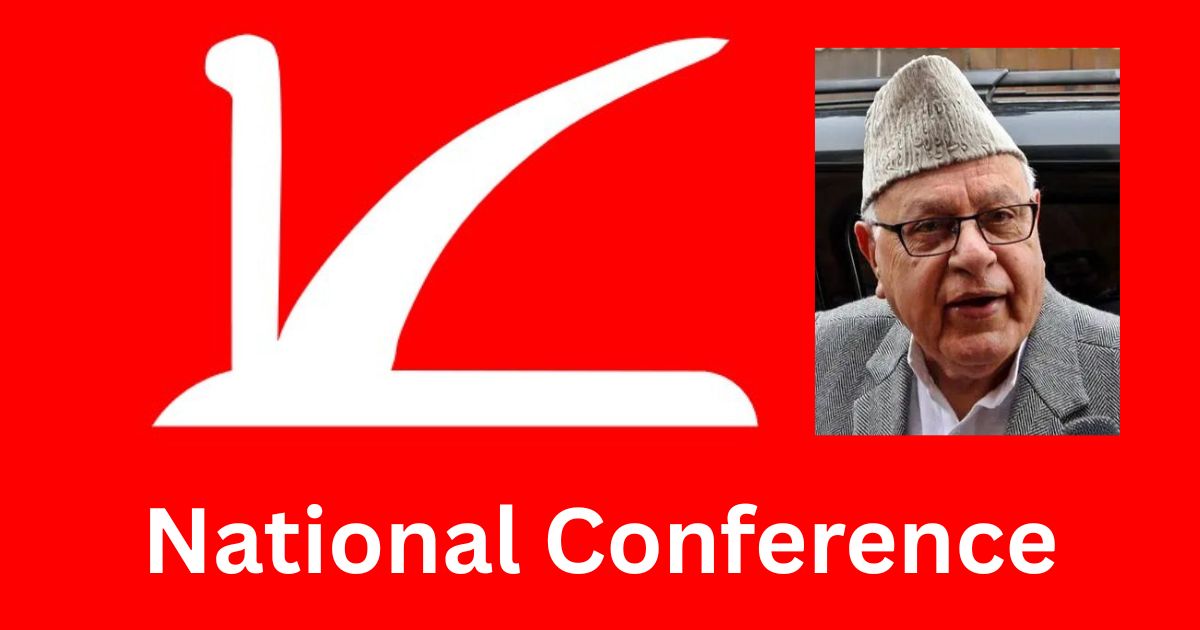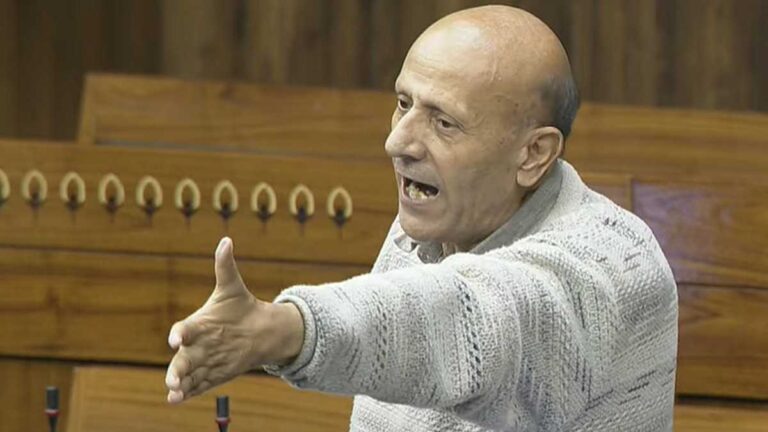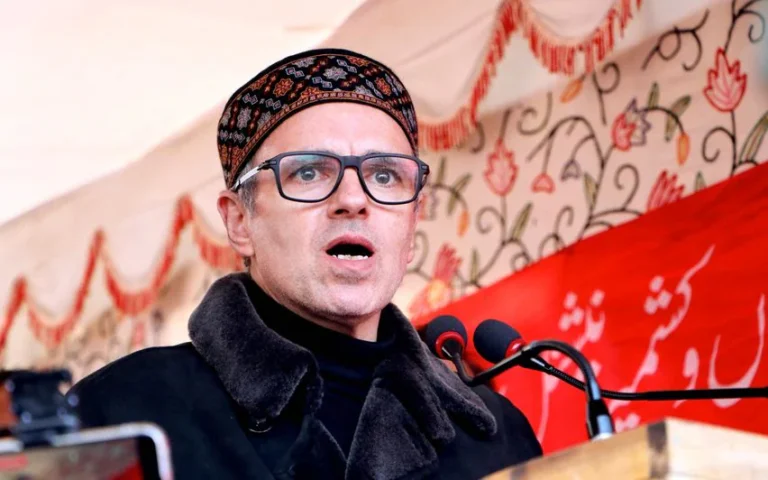Jammu & Kashmir Political Crisis: Rumours of 8 National Conference MLAs Planning to Defect Amid Turmoil

Jammu and Kashmir (J&K) is no stranger to political turbulence, but recent developments have pushed the region into a fresh storm. A single, unverified post on X from April 15, 2025, claimed that eight National Conference (NC) Members of the Legislative Assembly (MLAs) are poised to defect, threatening the stability of the NC-led government. This rumor, though lacking confirmation from credible sources, has amplified existing tensions surrounding the controversial Waqf (Amendment) Act, 2025, and the stalled restoration of J&K’s statehood. These issues have ignited fury across the political spectrum, with opposition parties like the People’s Democratic Party (PDP) and J&K People’s Conference (JKPC) accusing the NC of betrayal and inaction. This article delves into the alleged defections, the Waqf Act controversy, the statehood deadlock, and their combined impact on J&K’s fragile political landscape.
To Join Us On WhatsApp Click Here
The Defection Rumor: Fact or Fiction?
The claim that eight NC MLAs are ready to defect originated from a post by @AnnNewsKashmir on X, dated April 15, 2025. The NC holds 42 seats in the 90-seat J&K Legislative Assembly, making it the largest party in the coalition government, alongside six Congress MLAs and support from independents and smaller parties. A defection of eight MLAs could destabilize Chief Minister Omar Abdullah’s government, potentially forcing a realignment or even collapse of the ruling coalition.
However, no mainstream media outlet, official NC statement, or Assembly record has corroborated this claim as of April 15, 2025. The lack of named MLAs, motives, or destinations for the alleged defectors further casts doubt on the rumor’s credibility. In J&K’s volatile political history, defections are not uncommon—past examples include PDP MLAs joining the BJP in 2018—but such moves typically involve public posturing or negotiations, none of which are evident here. The X post may reflect local gossip or deliberate misinformation, a common tactic in J&K’s polarized environment. Until verified, the defection story remains speculative, but it has nonetheless fueled public and political unease.
The Waqf (Amendment) Act, 2025: A Religious and Political Flashpoint
The Waqf (Amendment) Act, 2025, passed by Parliament on April 4, 2025, and enforced from April 8, 2025, after President Droupadi Murmu’s assent, has emerged as a central trigger for J&K’s unrest. The Act introduces changes to the management of waqf properties—endowments held in trust for Muslim religious and charitable purposes. Key amendments include digitizing waqf records, establishing time-bound dispute resolution tribunals, penalizing mismanagement, and controversially, mandating non-Muslim representation on waqf boards. Supporters, including the BJP-led central government, argue these reforms promote transparency and protect marginalized Muslim communities, such as widows and divorcees.
In J&K, where over 65% of the population is Muslim (per the 2011 Census), the Act has been widely criticized as an overreach into religious autonomy. Critics, including NC, PDP, and JKPC leaders, argue that it undermines Muslim control over sacred sites like mosques, shrines, and graveyards, potentially exposing them to disputes or confiscation. The inclusion of non-Muslims in waqf management is particularly contentious, seen by many as discriminatory when compared to other religious trusts, like Hindu temple boards, which face no similar mandate.
The J&K Legislative Assembly became a battleground over the Act during its budget session, ending April 8, 2025. NC MLAs, including Hilal Lone, Salman Sagar, and Abdul Majeed Larmi, staged dramatic protests, tearing copies of the Act and demanding its withdrawal. They sought an adjournment motion to discuss the law, but Speaker Abdul Rahim Rather, an NC veteran, rejected it, citing the Act’s sub-judice status in the Supreme Court. This decision sparked chaos, with the session adjourned for three days without passing any resolutions, including one condemning the Act.
Opposition parties seized the moment. PDP leader Iltija Mufti accused the NC of orchestrating a “theatrical” protest to mask its failure to pass a resolution, unlike Tamil Nadu’s Assembly, which explicitly opposed the Act. JKPC chief Sajad Lone called the NC’s actions a “drama,” noting that the Speaker’s ruling was questionable since the Supreme Court had not yet admitted the Waqf petitions. Lone lamented that J&K, India’s only Muslim-majority region, failed to take a stand, leaving a “blot” on its legacy.
The NC responded by escalating its legal fight. On April 11, 2025, three NC MLAs—Arjun Singh Raju, Reyaz Khan, and Hilal Lone—filed a Supreme Court petition challenging the Act as a “constitutionally alarming interference” in Muslim religious affairs. CM Omar Abdullah defended the protests, stating the Act “hurt the sentiments of the majority” in J&K. Yet, critics like PDP’s Waheed Para pointed to Abdullah’s meeting with Union Minority Affairs Minister Kiren Rijiju, who introduced the Waqf Bill, as evidence of NC’s weak opposition, suggesting a covert alignment with the BJP.
Statehood Restoration: A Promise Unfulfilled
Parallel to the Waqf controversy, the delay in restoring J&K’s statehood has deepened public and political frustration. J&K lost its statehood and special status in August 2019 when Article 370 was revoked, reducing it to a Union Territory under direct central control. The NC’s 2024 election campaign hinged on restoring statehood, with promises from PM Narendra Modi and Home Minister Amit Shah reinforcing expectations.
However, as of April 15, 2025, no concrete timeline exists. Omar Abdullah, after meeting Shah, expressed hope but admitted no firm commitment was made. The Assembly’s failure to pass three statehood resolutions during the chaotic Waqf protests further eroded trust. BJP leaders, like J&K unit chief Sunil Sharma, have tied statehood to the “complete eradication” of terrorism and separatism, a vague condition that critics argue delays restoration indefinitely.
Opposition parties have pounced on the NC’s inaction. PDP’s Iltija Mufti accused the government of prioritizing administrative perks, like officer transfers, over statehood advocacy. JKPC’s Sajad Lone questioned why the NC, with its majority, couldn’t push a resolution, hinting at internal disarray or external pressure. Public sentiment, already strained post-2019, is turning cynical, with many viewing the NC’s protests as a distraction from its governance failures.
Political Ramifications and Opposition Dynamics
The Waqf and statehood controversies have exposed fault lines within J&K’s political ecosystem. The NC, despite its electoral mandate in October 2024, risks squandering goodwill. Its majority should enable decisive action, yet the Assembly’s dysfunction—marked by protests against its own Speaker—suggests internal rifts or strategic missteps. The opposition, particularly the PDP and JKPC, has capitalized on this, framing the NC as complicit with the BJP’s agenda. Allegations of an NC-BJP “understanding” stem from historical alliances, like their 2014 coalition, and Abdullah’s recent interactions with BJP ministers.
The PDP, with eight seats, and JKPC, with one, lack the numbers to topple the government but are amplifying public discontent. Their protests in Srinagar and social media campaigns have kept pressure on the NC, though their own past ties with the BJP weaken their moral stance. The Congress, an NC ally with six seats, has been vocal on the Waqf issue, with MLA Nizamuddin Bhat demanding discussion, but its influence within the coalition remains limited.
The BJP, with 29 seats, has stayed relatively quiet, letting the NC face the heat. Its insistence on linking statehood to security goals aligns with its national narrative but alienates J&K’s Muslim majority, who see the Waqf Act as part of a broader centralizing agenda.
Broader Implications for J&K
The current crisis reflects deeper issues in J&K’s post-2019 reality. The revocation of Article 370 promised integration and development but left a governance vacuum, with locals feeling disenfranchised. The Waqf Act controversy taps into fears of cultural erosion, as waqf properties—mosques, shrines, and lands—are tied to Kashmiri identity. Statehood, meanwhile, symbolizes autonomy, and its delay fuels distrust in both the NC and the central government.
Public protests, though smaller than in 2019, are growing, particularly in the Kashmir Valley. The NC’s Supreme Court challenge may rally its base, but failure to deliver on statehood could erode its credibility. The opposition’s aggressive posturing risks further polarizing the electorate, while the BJP’s hardline stance may deepen alienation.
Verifying the Defection Claim
The defection rumor, while unconfirmed, underscores J&K’s fragile trust in institutions. Social media platforms like X can amplify unverified claims, necessitating caution. Readers should cross-check with primary sources, such as NC press releases, Assembly proceedings, or statements from MLAs. As of now, the claim lacks substance, but its persistence highlights the NC’s vulnerability amid mounting crises.
Conclusion
J&K stands at a crossroads. The Waqf (Amendment) Act, 2025, has inflamed religious and political sensitivities, while the statehood delay has exposed the NC’s governance challenges. The rumored defection of eight MLAs, though unverified, reflects the broader instability threatening the region’s first elected government in six years. The NC must navigate internal dissent, opposition attacks, and public expectations while confronting a central government with differing priorities. Whether it can restore trust and deliver on its promises will shape J&K’s future—politically, socially, and culturally. For now, the region remains a tinderbox, with every move watched closely by its people and beyond.
You Might Also Like:
Cyber Police Kashmir Cracks Down on 50 Mule Accounts Linked to Online Fraud
J&K Students Association Thanks Dr. S. Jaishankar for Rescuing Trafficked Kashmiri Youth
Omar Abdullah Slams Waqf Amendment Act 2025, Calls It Discriminatory and Unconstitutional




